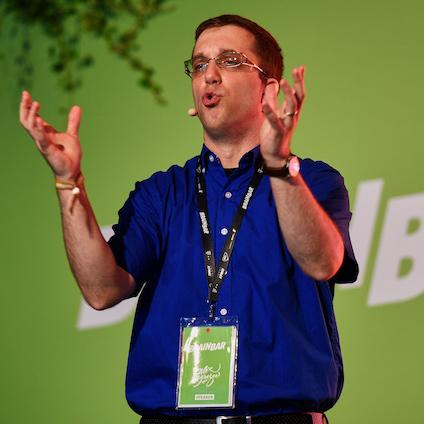Note: This column was originally submitted and initially accepted for publication by an associate editor at the journal Science. After two months of work and nine revisions, it was spiked at the last moment by a senior editor. (Read about the controversy here.) What follows is the ninth revision.
When I first embarked on a career as a science writer, I was brimming with confidence. I assumed that my Ph.D. in microbiology would convey a certain level of authority, that readers would view me as a respected, trusted source of information. I also thought that my scientific background would give me the knowledge necessary to beat back unfounded rumors about science that were circulating online—for instance, about the safety of vaccines and genetically modified organisms. As a freshly minted Ph.D., I imagined that I could go out into the world, write about science, and quickly make a difference. I couldn’t have been more wrong.
I didn’t go to grad school thinking that I wanted to be a science writer. I imagined that I’d toil away in a laboratory for the rest of my career, bravely working with dangerous microbes—a vision that I’d harbored since high school. But that career path became less and less appealing the further I got in my Ph.D. program.
I wasn’t as adept in the lab as I had thought I would be, which had an enormous impact on my confidence. I took failure personally, concluding that I wasn’t a very good scientist. As the years wore on, I also grew weary working on the same molecule day in and day out. It felt as though I was going to school to learn more and more about less and less.
After 4 years, I published my first paper. That should have been a moment of pure jubilation. But instead, the experience left me feeling demotivated because so much time, effort, and failed experiments went into a single publication. I wasn’t excited to get back to the bench and work on experiments that would lead to another paper. I wanted to leave grad school—the sooner the better. It was then that I realized that while I loved learning about science, I didn’t love doing science.
But the idea of quitting didn’t appeal to me. Not that far in. So, I toughed it out another 2 years and finished my Ph.D. During my final year, I began thinking about and investigating career opportunities away from the bench. I long had a talent and interest in writing, so a career in science communication was at the top of my list.
During grad school, I often read stories on a political news aggregator website called RealClearPolitics. Going out on a limb, I contacted one of its founders and pitched the idea of establishing a sister website that would aggregate the web’s best science news and analysis. Much to my delight and astonishment, he hired me. So, when I graduated, I became the founding editor of RealClearScience—a job that required me to select external content to feature on our website and to write my own articles.
I was excited to get out of the lab and set out on a different path. But the job was a bit harder than I imagined. I was expected to have an answer for just about any scientific topic under the sun, from astrophysics to zoology. I was also inundated with questions such as, “Could there be life on that exoplanet I saw in the news?” My microbiology training didn’t equip me with the knowledge necessary to answer most of these questions. So, I spent considerable effort learning as much as I could about other scientific disciplines. A grasp of black holes, as it turns out, doesn’t always come naturally to microbiologists.
I was also frustrated when my articles were misinterpreted or taken out of context. For instance, when I defended vaccines, some readers didn’t pay attention to the science I was presenting. Instead, they wrote to accuse me of being in the pocket of the pharmaceutical industry—calling me a liar, a vaccine pusher, and a corporate shill. Because of my Ph.D., some readers also viewed me as an “egghead” who could not be trusted. It felt as though no amount of logic could convince them otherwise, and that took some of the wind out of my sails.
I carried on, though, buoyed by the thought that it would all be worth it if I could change a single person’s mind. I also found the job to be a good fit for me personally, as I enjoyed learning about a variety of topics and figuring out how to communicate them to the public.
Four years ago, I started a new job at a science and consumer advocacy nonprofit, which has a stated aim to separate fact from fiction in public discussions about science and technology. I now spend even more time tackling controversial topics head on—trying to present the best science and to debunk dubious scientific claims online. I’m still inundated with mountains of hate mail, including an occasional death threat. But I love my work and am glad that I made a leap to a new career path. Childhood dreams, I’ve come to learn, aren’t always all they’re cracked up to be.




